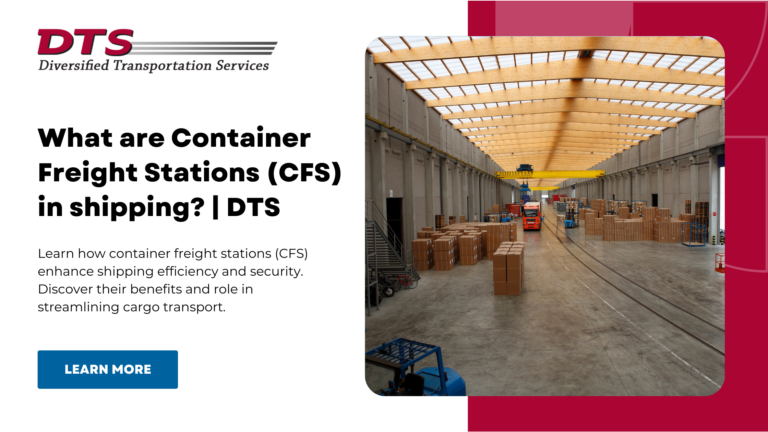
If shipping less-than-truckload (LTL) or less-than-container loads (LCL) is a critical part of your operations, a container freight station (CFS) could help you transport goods more efficiently.
What is a CFS? How does it improve freight transportation? In this post, we’ll explore container freight stations to help you understand their different functions and benefits.
A container freight station is a facility that gets less-than-container loads ready to continue their journey after coming into a port. For example, if you’re importing freight into the United States from another country by sea, your freight might come into the country at a CFS near a major seaport.
Once a shipment reaches a container freight station, it will either be consolidated or deconsolidated.
Once processed at a container freight station, shipments are ready to move to their final destination.
Container freight stations are usually located at or near major transportation hubs, such as terminals, airports, and ocean ports. This allows freight to start moving on to the next stage of its journey as soon as it’s ready.
Here are four major benefits of using a CFS in shipping processes.
Using a CFS in shipping can significantly boost the efficiency and reliability of transporting freight. When you choose a trusted CFS, container freight stations will handle the customs clearance process for you. That can lead to quicker freight transportation, whether dealing with imports or exports.
Security is paramount when transporting freight, especially when goods worth almost $700 million in total were lost to cargo theft in 2023. Protecting goods on their journey to their final destination is easier said than done, though.
Fortunately, reputable container freight stations employ teams of trained, experienced workers who will look after your freight for you. Cargo can be stored securely on-site, with various measures to prevent unauthorized visitors from gaining access. A responsible team will also take great care when loading and unloading goods to minimize the risk of accidental damage.
When you choose to use a CFS in shipping, goods can be stored at a container freight station safely for a short period. The amount of time varies, but a CFS will store your freight securely before and after transportation. It may stay on-site until it can be dispatched to another destination.
Ports can easily become congested with freight regularly coming and going across borders. Container freight stations help address this issue, creating a smoother process that benefits everyone. Less congestion means less risk of delays and disruptions that may prove costly.
Shipments are processed at a container freight station in the following way:
Beyond these standard steps, there are a few other functions that happen at container freight stations. These include:
Container freight stations can help streamline and speed up your shipping operations. But how do you get your shipments from the CFS to its final destination? That’s where DTS comes in. After your goods are imported to the US, we provide reliable LTL, FTL, or partial truckload services to move cargo from a container freight station to its final destination.
Get in touch today to learn more about how DTS can help.
Whether you're a company looking to improve one facet of your supply chain, your entire supply chain, or simply looking for a transportation and logistics consultation, we can help.